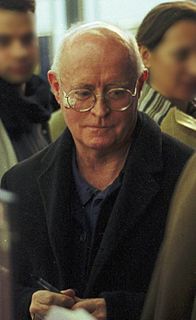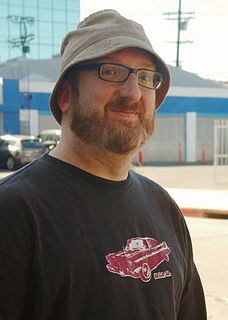A Quote by Edward Bond
I'm not interested in an imaginary world
Quote Topics
Related Quotes
Once you realize that the world is your own projection, you are free of it. You need not free yourself of a world that does not exist, except in your own imagination! However is the picture, beautiful or ugly, you are painting it and you are not bound by it. Realize that there is nobody to force it on you, that it is due to the habit of taking the imaginary to be real. See the imaginary as imaginary and be free of fear.
For any artistic person who creates imaginary people, the art is like inhabiting the life and mind of a seven-year-old child with imaginary friends and imaginary events and imaginary grace and imaginary tragedy. Within that alternate universe, the characters do have quite a bit of free will. I know it's happening in my mind and my mind alone, but they seem to have their own ability to shape their destinies. So I'm not shooting for anything. If the characters are vulnerable it's simply because they're very human.
Religion is the yeast of death cakes. It is the most awful agent on a vulnerable mind. It's the refuge of alienated and lonely people. It's what people had before television. It yokes people together into an imaginary world. It is just people talking to their imaginary friends, at length. I wouldn't mind, but some of the people are world leaders.
It is clear that everybody interested in science must be interested in world 3 objects. A physical scientist, to start with, may be interested mainly in world 1 objects--say crystals and X-rays. But very soon he must realize how much depends on our interpretation of the facts, that is, on our theories, and so on world 3 objects. Similarly, a historian of science, or a philosopher interested in science must be largely a student of world 3 objects.
One might think this means that imaginary numbers are just a mathematical game having nothing to do with the real world. From the viewpoint of positivist philosophy, however, one cannot determine what is real. All one can do is find which mathematical models describe the universe we live in. It turns out that a mathematical model involving imaginary time predicts not only effects we have already observed but also effects we have not been able to measure yet nevertheless believe in for other reasons. So what is real and what is imaginary? Is the distinction just in our minds?





































